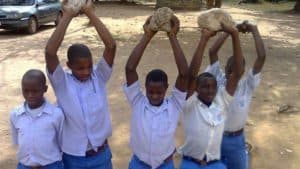To punish a child for speaking Igbo—or any native African language—in school is more than a disciplinary action. It is a quiet violence. A slow, systemic erasure of identity. It is not merely wrong; it is a philosophical betrayal, a psychological wound inflicted in the sacred space of learning.
What does it mean when a child opens their mouth to speak the language of their ancestors, and they are met with shame?
It means we have forgotten who we are.
It means the classroom has become a court, and mother tongues are the accused.
It means we are still colonized—only now, the oppressor lives inside us.
Contents
Language as Identity and Inheritance
Language is not just a tool for communication; it is a vessel of memory. Igbo is not merely words—it is worldview, rhythm, proverbs, cosmology, ancestral knowledge. To forbid a child from speaking Igbo is to sever their link to centuries of wisdom, to disconnect them from their origin story.
When a child speaks their native language, they are not just talking. They are remembering. They are participating in the ongoing survival of a culture.
To shame a child for this is to say, “Forget who you are. Become someone else’s idea of worthy.”
Cognitive Power in the Mother Tongue
The irony is cruel. Studies in linguistics and developmental psychology consistently show that children who learn in their mother tongue outperform their peers in critical thinking, creativity, and emotional regulation. The mind flourishes in familiarity. Thought takes flight when anchored in language that is not foreign.
But when we penalize children for speaking what is natural to them, we create dissonance. We ask them to think deeply in a language they barely own. We teach them to associate their native identity with punishment. And so, they retreat—not just from language, but from learning itself.
Social Roots and Communal Bonds
Language is not only internal—it is social. When a child speaks Igbo, they claim space within their community. They understand the stories of elders. They participate in rituals, songs, laughter, and grief. They belong.
Take that away, and you create a child who is fluent in English but a stranger in their own village. They may pass exams but fail at kinship. They may gain fluency but lose their roots.
Is that the progress we want?
The Colonial Hangover We Still Nurse
To discourage African languages in education is to continue sipping from the poisoned chalice of colonialism. The British may have left, but the ghosts of their curriculum still hover over our classrooms. A curriculum that taught us that our gods were devils, our names were difficult, and our languages were inferior.
We are now the ones carrying the whip—disciplining our children for sounding like their grandmothers. We must ask ourselves: Who truly benefits from this silence?
Rethinking the Future: A Call to Parents, Educators, and Leaders
It is time to decolonize our minds and our schools. English is useful, yes—but it should not be weaponized against Igbo, Yoruba, Hausa, Efik, Tiv, or Idoma. Our children should be bilingual, even multilingual—not monolingual and ashamed.
Parents, let your children speak freely at home.
Teachers, praise them when they preserve their tongue.
Policy-makers, make indigenous languages a pillar of education, not a footnote.
Religious institutions, stop shaming native names and expressions.
And to the youth—do not let anyone convince you that your language is backward. There is nothing backward about survival. Nothing primitive about pride.
Let the Dialogue Begin
This is not just about language—it is about identity, power, and liberation. If you care about this issue, share your voice. Share your story. Let us no longer whisper in our mother tongues. Let us speak them boldly—in classrooms, in offices, on stages, and online.
Because every time a child is punished for speaking Igbo, we all lose something sacred.
And if you still need more gist on this matter, read deeper. You may just discover that the tongue you silence today could have been the one to save a culture tomorrow.
For those who want more gist on this matter, please read this, it is fascinating http://www.codewit.com/…/22602-why-are-schools-punishing-ch…





Make I no speak vernacular again? Inu kwam?
What is the sense in telling our children not to speak in our languages? Is that not stupid and self-defeating? How can we teach our kids to hate their heritage? Is it, not time for parents, African leaders and educationists to revise this colonial-oriented educational curriculum given to us by our colonial masters? I am not saying we should not learn English o, but why punish and disgrace our kids because they are speaking their native tongues? Is that not “kolomentality”? Where else in the world are kids penalised for expressing their natural language apart from Africa? Is this a normal thing at all? Let’s discuss this biko?
Picture: This image of two kids forced to wear sacks for speaking Luganda in school generated much discussion on Facebook this week.